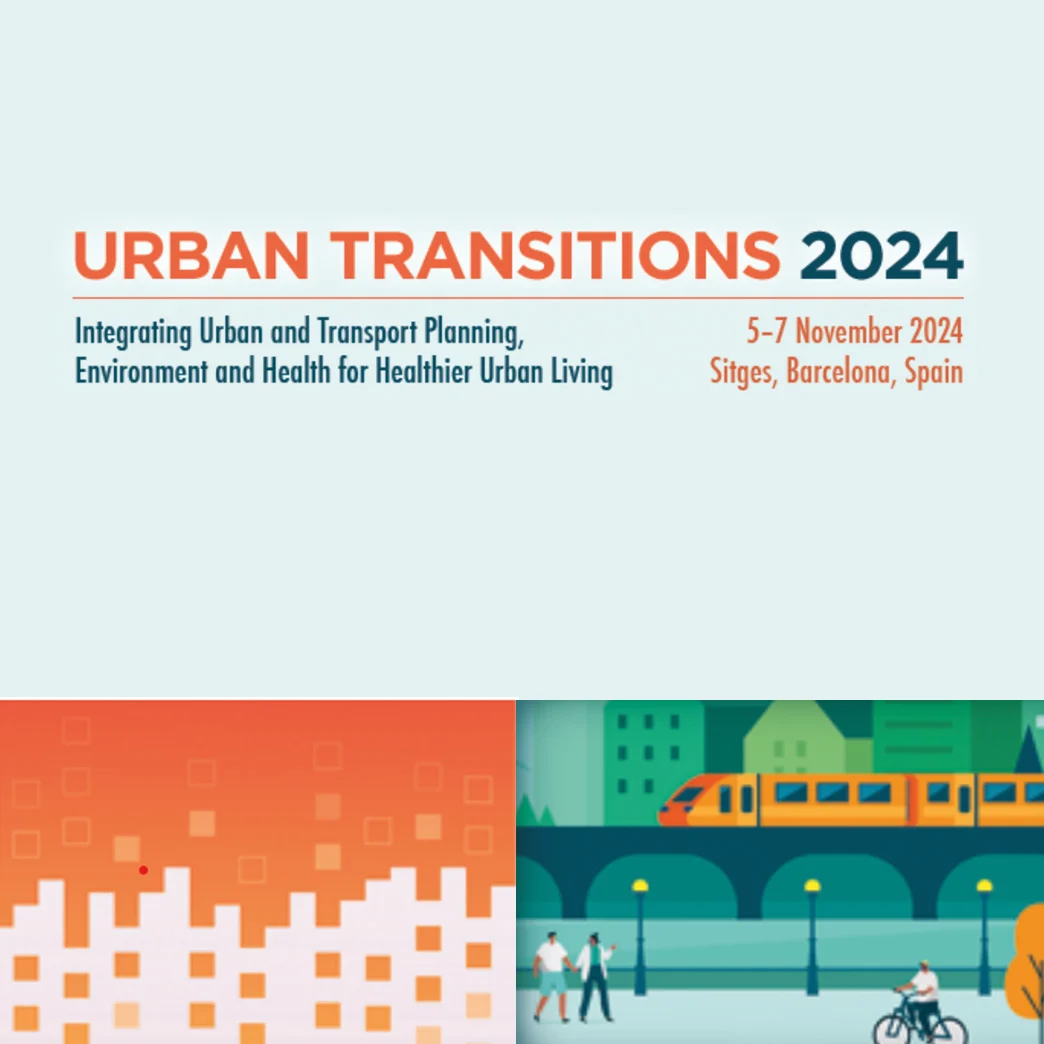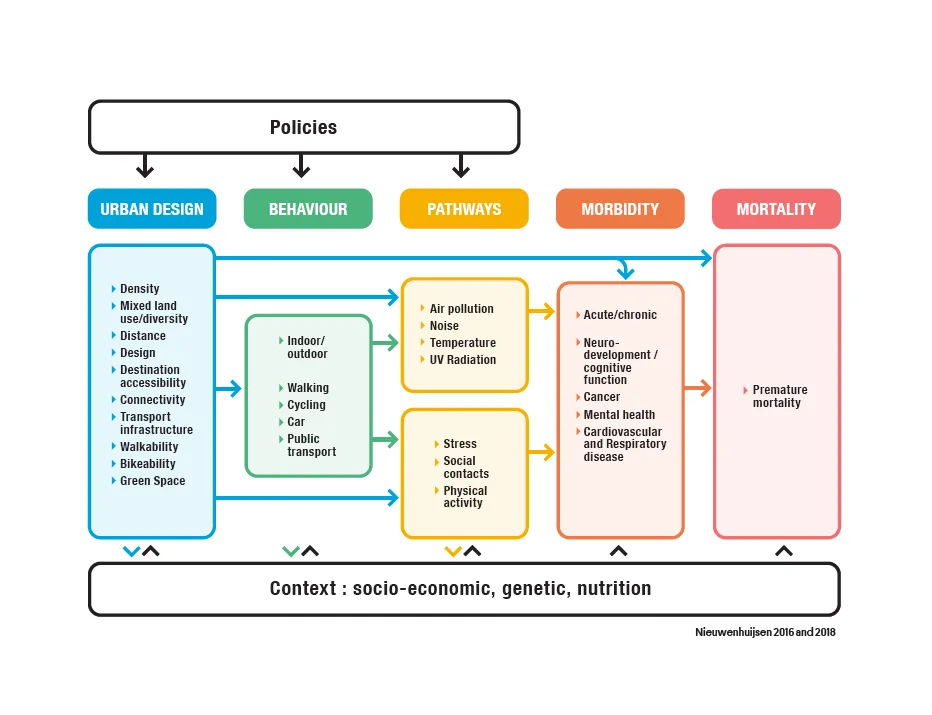Invited talks from renowned speakers
Meet the esteemed committee members and speakers participating in the conference.

Leider unterstützen wir Ihren Browser nicht vollständig. Wenn Sie die Möglichkeit dazu haben, nehmen Sie bitte ein Upgrade auf eine neuere Version vor oder verwenden Sie Mozilla Firefox, Microsoft Edge, Google Chrome oder Safari 14 bzw. eine neuere Version. Wenn Sie nicht dazu in der Lage sind und Unterstützung benötigen, senden Sie uns bitte Ihr Feedback.
Wir würden uns über Ihr Feedback zu diesen neuen Seiten freuen.Sagen Sie uns, was Sie denken Wird in neuem Tab/Fenster geöffnet
This conference has now taken place. Further information on future editions will be added to this site shortly.
To stay informed complete the sign-up form Wird in neuem Tab/Fenster geöffnet.

Urban Transitions 2024 aims to promote healthy urban development by bringing together different disciplines working within cities.
Meet world leading experts on urban and transport planning, architecture, environmental exposure assessment, environmental epidemiology, physical activity, climate change, and public health and governance to discuss current challenges and solutions.
Present your research at Urban Transitions 2024: Poster abstracts are still being considered.
Meet the esteemed committee members and speakers participating in the conference.

Present your latest research: Abstracts for posters are still being considered on the following topics
Cities (concepts and frameworks)
Land use and transport (interrelations, planning, design and engineering)
Planning, environment and health (exposures, epidemiology, health effects and impacts)
Nature based solutions/green cities
Justice and inequality
Engagement, impacts and education

Choose from a variety of sponsorship and commercial options to raise your profile and position your company as a thought leader in the community.

The majority of people live in cities and urbanization is continuing worldwide. Cities have long been known to be society’s predominant engine of innovation and wealth creation, yet they are also a main source of pollution and disease. There has been a transition to non communicable diseases (NCDs) in many low and medium income countries, partly due to urbanization and related environmental exposures and lifestyles. Furthermore, climate change is a driver for change. Cities are often characterized by high levels of environmental exposures such as air pollution and noise, heat island effects and lack of green space and physical activity levels.
Emerging evidence suggests that (poor) urban and transport planning may be to a large extent responsible for this and may have a large impact on mortality and morbidity in cities. Furthermore the impacts are not equally distributed among the population with the more the more deprived often suffering disproportionately.
The Sustainable Development Goals and the New Urban Agenda have given new impetus to improve our cities. Paradigms such as sustainable cities, liveable cities, resilient cities, smart cities and healthy cities have been promoted successfully by different communities, but need more alignment to make systematic improvements to cities. New concepts such as car free cities, compact cities, low carbon cities and nature based solutions and new technologies such as electric vehicles and (shared) autonomous vehicles have been introduced and may improve the urban environment and thereby health.
Decision-makers need not only better data on the complexity of factors in environmental and developmental processes affecting human health, but also enhanced understanding of the linkages to be able to know at which level to target their actions. Cities have come to the forefront of providing solutions for issues such as climate change, which has co-benefits on health, but still need better knowledge. City organisations (for example C40, Healthy Polis, ICLEI) play an important role.
Multi-sectorial and multi-disciplinary approaches are needed to tackle the current problems and therefore we have organized an international conference with world leading experts on urban and transport planning, architecture, environmental science and exposures, physical activity, climate change, public health to discuss the current status and challenges and solutions in cities.
The objective of the conference is to promote healthy urban development by bringing together different sectors and disciplines (e.g. urban and transport planning, architecture, green space management, environmental exposure assessment, environmental epidemiology, physical activity, climate change, and public health and governance) working within cities and presenting the state of the art research and providing solutions to and future healthy visions of our cities.
This conference will be of interest to researchers, policy makers and practitioners in:
Urban planning
Architecture
Transport planning
Environmental science and exposure assessment
Climate change
Public health (epidemiologists, health impact assessment)
Citizens science
Social science
Policy and decision making

We are pleased to announce the launch of Urban Transitions, a multidisciplinary open access journal which will be open for submissions from November 2024:
Urban Transitions is a broad scope, open access journal aimed at integrating urban planning, transport, environment, and health for healthier urban living. The journal is multidisciplinary in nature, and welcomes contributions from across the social sciences such as geography, planning, development, public health, safety science, transportation, and urban studies. Any submission reporting scientifically accurate and valuable research within these areas will be considered for publication following rigorous peer review. We welcome theoretical and practical research from all methodological approaches.
Researchers presenting at Urban Transitions are invited to submit full manuscripts to Urban Transitions the journal. Full journal information and submission instructions coming soon.

This conference is organised by Elsevier and supported by ISGlobal (Instituto de Salud Global Barcelona)

Walkable Streets 3-4 November 2024 | Barcelona, Spain
An intensive 2-day program on the benefits of walkable streets organised by City Lab Barcelona. By foot, we will discover why Barcelona has been acclaimed as one of the world’s most walkable cities. Through a combination of short lectures, walking tours and meetings with experts, the program will cover the economic, health and environmental benefits of walkable cities.
Transportation Research Symposium 25-28 May 2025 | Postillion Hotel, Rotterdam, The Netherlands
